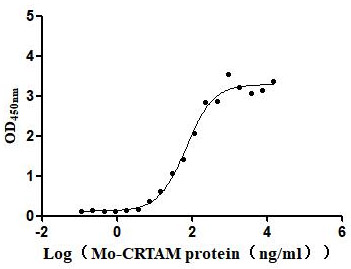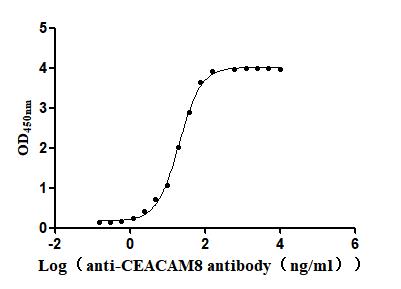Recombinant Mouse Palmitoyl-protein thioesterase 1 (Ppt1)
In Stock-
中文名称:小鼠Ppt1重组蛋白
-
货号:CSB-MP018587MO
-
规格:¥1908
-
图片:
-
其他:
产品详情
-
纯度:Greater than 90% as determined by SDS-PAGE.
-
基因名:
-
Uniprot No.:
-
种属:Mus musculus (Mouse)
-
蛋白长度:Full Length of Mature Protein
-
来源:Mammalian cell
-
分子量:33.0 kDa
-
表达区域:28-306aa
-
氨基酸序列DPPSPPPLVIWHGMGDSCCNPMSMGVIKKMVEKEIPGIYVLSLEIGKNMMEDVENSFFLNVNVQVNMVCQILEKDPKLQQGYNAIGFSQGGQFLRAVAQRCPTPPMMTLISVGGQHQGVFGLPRCPGESSHICDFIRKSLNAGAYSKLVQERLVQAQYWHDPIKESVYRNYSIFLADINQERCVNESYKKNLMALKKFVMVKFFNDSIVDPVDSEWFGFYRSGQAKETIPLQESTLYTEDRLGLKKMDKAGKLVFLAKEGDHLQISKEWFTAHIIPFLK
Note: The complete sequence including tag sequence, target protein sequence and linker sequence could be provided upon request. -
蛋白标签:C-terminal 10xHis-tagged
-
产品提供形式:Liquid or Lyophilized powder
Note: We will preferentially ship the format that we have in stock, however, if you have any special requirement for the format, please remark your requirement when placing the order, we will prepare according to your demand. -
缓冲液:If the delivery form is liquid, the default storage buffer is Tris/PBS-based buffer, 5%-50% glycerol.If the delivery form is lyophilized powder, the buffer before lyophilization is Tris/PBS-based buffer, 6% Trehalose.
-
复溶:We recommend that this vial be briefly centrifuged prior to opening to bring the contents to the bottom. Please reconstitute protein in deionized sterile water to a concentration of 0.1-1.0 mg/mL.We recommend to add 5-50% of glycerol (final concentration) and aliquot for long-term storage at -20℃/-80℃. Our default final concentration of glycerol is 50%. Customers could use it as reference.
-
储存条件:Store at -20°C/-80°C upon receipt, aliquoting is necessary for mutiple use. Avoid repeated freeze-thaw cycles.
-
保质期:The shelf life is related to many factors, storage state, buffer ingredients, storage temperature and the stability of the protein itself.
Generally, the shelf life of liquid form is 6 months at -20°C/-80°C. The shelf life of lyophilized form is 12 months at -20°C/-80°C. -
货期:3-7 business days
-
注意事项:Repeated freezing and thawing is not recommended. Store working aliquots at 4°C for up to one week.
-
Datasheet & COA:Please contact us to get it.
相关产品
靶点详情
-
功能:Removes thioester-linked fatty acyl groups such as palmitate from modified cysteine residues in proteins or peptides during lysosomal degradation. Prefers acyl chain lengths of 14 to 18 carbons.
-
基因功能参考文献:
- Our results indicate that PPT1 deficiency causes alterations in the mitochondrial respiratory chain. PMID: 27722792
- Proteomics analysis on isolated cilia revealed 660 proteins, which differed in their abundance levels between wild type and Ppt1 knock out. PMID: 28334871
- In the novel Cln1(R151X) mouse model of INCL. PMID: 26648046
- Parkinson-like motor/sensorimotor deficits in Cln1-/- mice are not mediated by dopamine deficiency. PMID: 26238334
- Data show that Cln1 mutations disrupt the maturation of cathepsin D in lysosome contributing to neuropathology of infantile neuronal ceroid lipofuscinoses and suggest cathepsin D deficiency to be common link between infantile and congenital form. PMID: 26160911
- The authors have generated a Cln1 R151X point mutation mouse model that recapitulates the molecular, neuropathological and behavioral phenotypes of neuronal ceroid lipofuscinoses. PMID: 25205113
- Data (including data from knockout mice) suggest that deficiency of Ppt1 leads to accumulation of granular osmiophilic deposits in many cell types, especially in astrocytes. [review-like article] PMID: 25233404
- Data suggest that mouse macrophages express PPT1; PPT1 appears to contribute to 2-arachidonylglycerol hydrolysis activity in peritoneal macrophages in culture. PMID: 24083319
- The simultaneous loss of both Cln1 and Cln5 genes might enhance the typical pathological phenotypes of these mice by disrupting or downregulating shared or convergent pathogenic pathways. PMID: 23065637
- These results uncover a previously unknown phenotype associated with PPT1 deficiency, that of altered thermoregulation, which is associated with impaired lipolysis and neurotransmitter release to brown adipose tissue during cold exposure. PMID: 23139814
- The addition of the small molecule PPT1 mimetic can further increase that response. PMID: 22310926
- Glutamate receptor 4 (GluR4) AMPA receptor hypofunction and NMDA receptor hyperfunction phenotype show increased sensitivity in Ppt1-deficient neurons. PMID: 21971706
- Data show a progressive breakdown of axons and synapses in the brains of two different models of NCL: Ppt1(-/-) model of infantile NCL and Cln6(nclf) model of variant late-infantile NCL. PMID: 19640925
- The polarized axonal targeting of PPT1 may well indicate a role for PPT1 in the exocytotic pathway of neurons. PMID: 12483688
- was only detected in developing testis not ovary PMID: 15128596
- The severely affected PPT1-/- mouse CNS exhibited reduced volume of both cortical and subcortical regions, but with sparing of the cerebellum PMID: 15193291
- Autopsy of PPT1 mutant mice revealed a severe loss of brain mass and accumulation of autofluorescent granular osmiophilic deposits, both characteristic of Neuronal Ceroid Lipofuscinosis. PMID: 15649713
- We conclude that from an early age, neurons deficient in PPT1 enzyme activity display intrinsically abnormal properties that could potentially explain key features of the clinical disease, such as myoclonus and seizures. PMID: 16242638
- Palmitoyl-protein thioesterase-1 deficiency mediates the activation of the unfolded protein response and neuronal apoptosis in infantile neuronal ceroid lipofuscinosis. PMID: 16368712
- Age-dependent increase in LPC levels in the PPT1-KO mouse brain positively correlates with elevated expression of the genes characteristically associated with phagocytes. PMID: 17341491
- Neuron-specific changes for F(1)-complex in the Ppt1-deficient cells and give clues for a possible link between lipid metabolism and neurodegeneration in Infantile neuronal ceroid lipofuscinosis. PMID: 18245779
- We analyzed locus specific gene expression and showed regional clustering of Cln1 and three major genes of this pathway, further supporting a close functional relationship between the corresponding gene products PMID: 18371231
- Palmitoyl protein thioesterase-1 deficiency impairs synaptic vesicle recycling at nerve terminals in humans and mice PMID: 18704195
- This study suggests that neuronal-glial interactions are the core pathology in the palmitoyl protein thioesterase 1 deficient cerebellum. PMID: 19416667
显示更多
收起更多
-
亚细胞定位:Lysosome. Secreted.
-
蛋白家族:Palmitoyl-protein thioesterase family
-
组织特异性:Highest level in testis and kidney, lower in heart, brain and lung and lowest in skeletal muscle.
-
数据库链接:
Most popular with customers
-
Recombinant Human Transthyretin (TTR) (Active)
Express system: Mammalian cell
Species: Homo sapiens (Human)
-
Recombinant Human Semaphorin-4D (SEMA4D), partial (Active)
Express system: Mammalian cell
Species: Homo sapiens (Human)
-
Recombinant Macaca fascicularis Delta-like protein 3 (DLL3), partial (Active)
Express system: Mammalian cell
Species: Macaca fascicularis (Crab-eating macaque) (Cynomolgus monkey)
-
Recombinant Human Neuropilin-1 (NRP1) (Active)
Express system: Mammalian cell
Species: Homo sapiens (Human)
-
Recombinant Human Microtubule-associated protein tau (MAPT) (Active)
Express system: Mammalian cell
Species: Homo sapiens (Human)
-
Recombinant Human Dickkopf-related protein 1 (DKK1) (Active)
Express system: Mammalian cell
Species: Homo sapiens (Human)
-
Recombinant Mouse Cell adhesion molecule 1 (Cadm1), partial (Active)
Express system: Mammalian cell
Species: Mus musculus (Mouse)
-
Recombinant Human Carcinoembryonic antigen-related cell adhesion molecule 8(CEACAM8) (Active)
Express system: Mammalian cell
Species: Homo sapiens (Human)

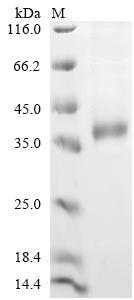

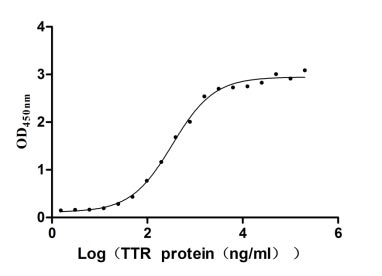

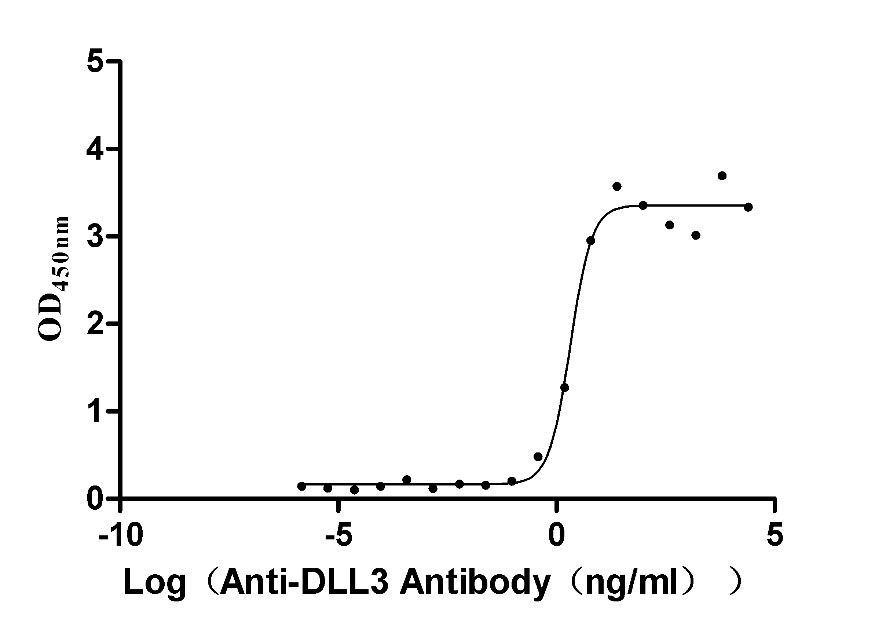

-AC1.jpg)
-AC1.jpg)
